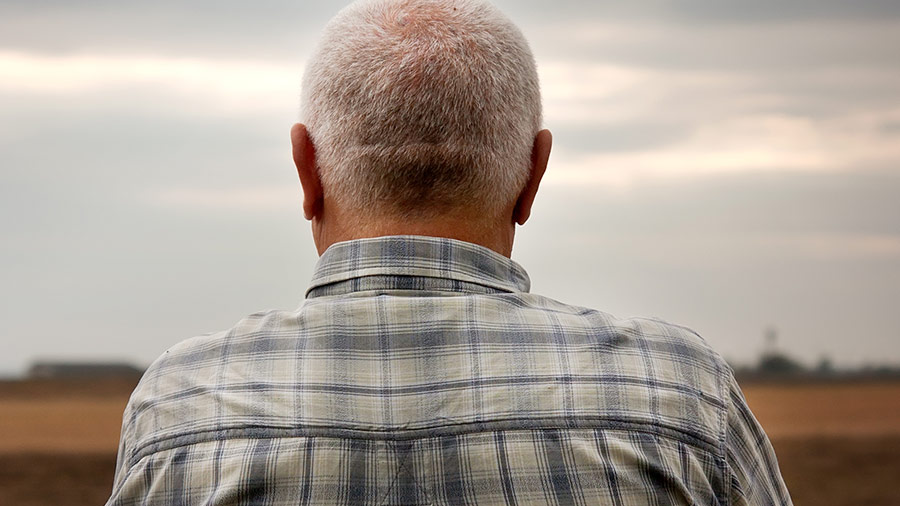Rabi’s mental health findings a ‘wake-up call’ for farming
 © AdobeStock/DariaChich
© AdobeStock/DariaChich The Royal Agricultural Benevolent Institution (Rabi) is to launch three new pilot support schemes in response to a major survey which reveals the extent of agriculture’s mental health challenges.
The farm charity’s findings, published on Thursday 14 October, have been described by its president, the Duke of Gloucester, as a “wake-up call to all who want to help build a better future for the farming community”.
See also: More than 15,000 responses to Rabi farmer wellbeing survey
More than 15,000 responses were gathered from the farming community in England and Wales by rural researchers at the University of Exeter.
The survey reveals that more than a third of respondents (36%) are “probably or possibly depressed”.
More than half of the farming community (52%) experience physical pain and discomfort which has a profound impact on mental health.
One in four have mobility problems, and 21% have problems carrying out their work because of health issues.
The prevalence of depression and anxiety does vary between sectors, however, with those working in cereals, general cropping and horticulture less likely than others to experience those conditions.
Stress factors and other key findings
- The major causes cited for stress are regulation, compliance and inspection; the coronavirus pandemic; volatile weather; the loss of subsidies and future trade deals; and rural crime.
- The number of significant sources of stress reported by different types of farm ranges from 4.3 factors in specialist poultry farms to more than six factors for Less Favoured Area grazing livestock and pig farmers.
- More than half of the women who responded (58%) said they experienced mild, moderate or severe anxiety, compared with 44% of men.
- Feelings of being often or always lonely are most prominent in younger age groups.
- One in 10 men and women in the 16-24 age group report feeling lonely often or always. For women, this proportion rises to 13% among 25-34-year-olds – the age group most likely to experience some level of anxiety.
- More positively, 59% of respondents believe their business is sustainable over the next five years.
In response to the findings, Suzy Deeley, Rabi’s corporate partnership manager, said the charity would pilot three new support schemes: a mental health first aid training course; better access to in-person mental health support; and further trials of the Community Pillars scheme, which creates small, local forums where farmers can talk in confidence.
“There is a huge amount of work going on behind the scenes at Rabi to initiate a targeted and appropriate response in partnership with key partner organisations, and we look forward to being able to share more on these developments soon,” Ms Deeley said.
Lead researcher Matt Lobley said the report gave a great insight into the realities of farm life, and its recommendations were in line with how Rabi was evolving.
